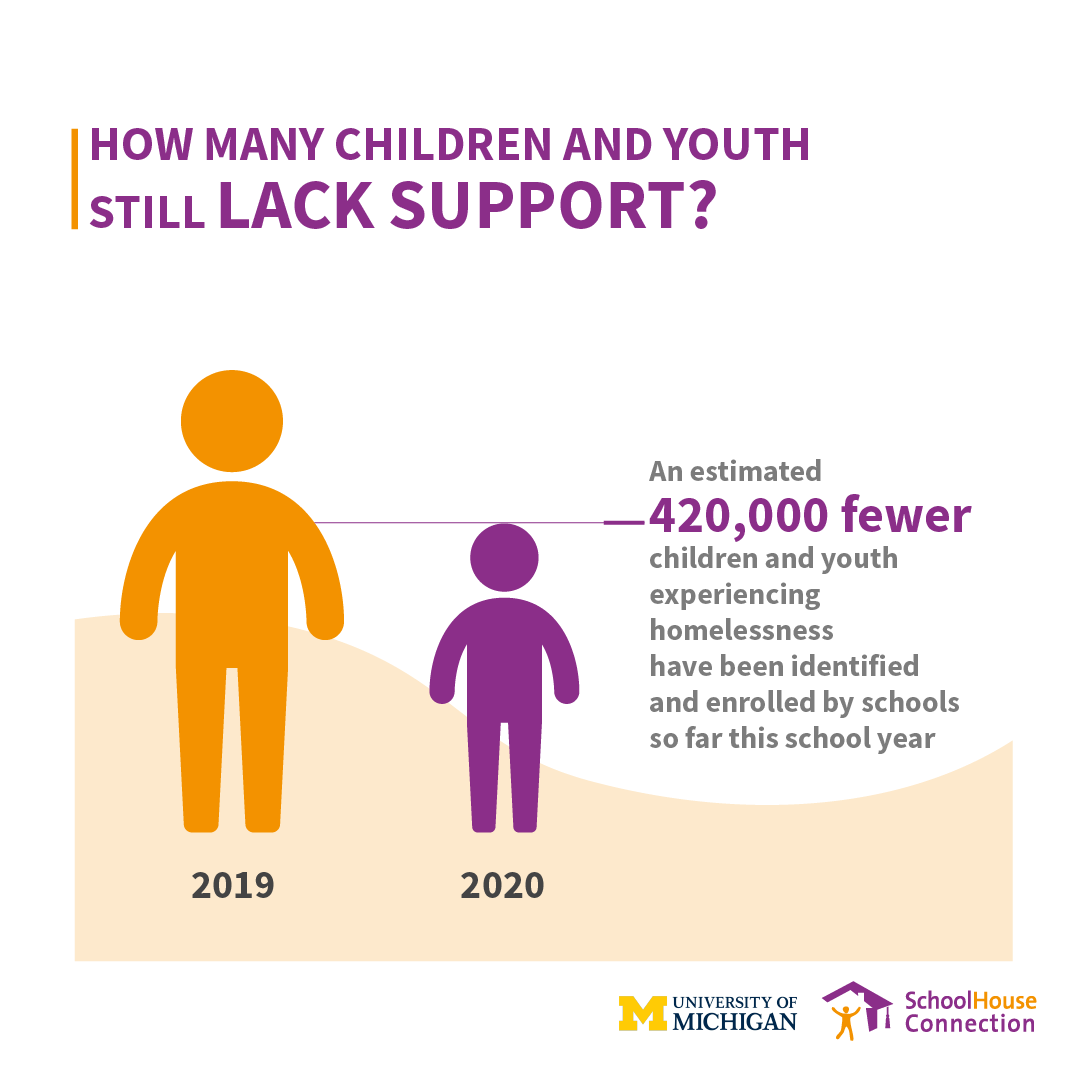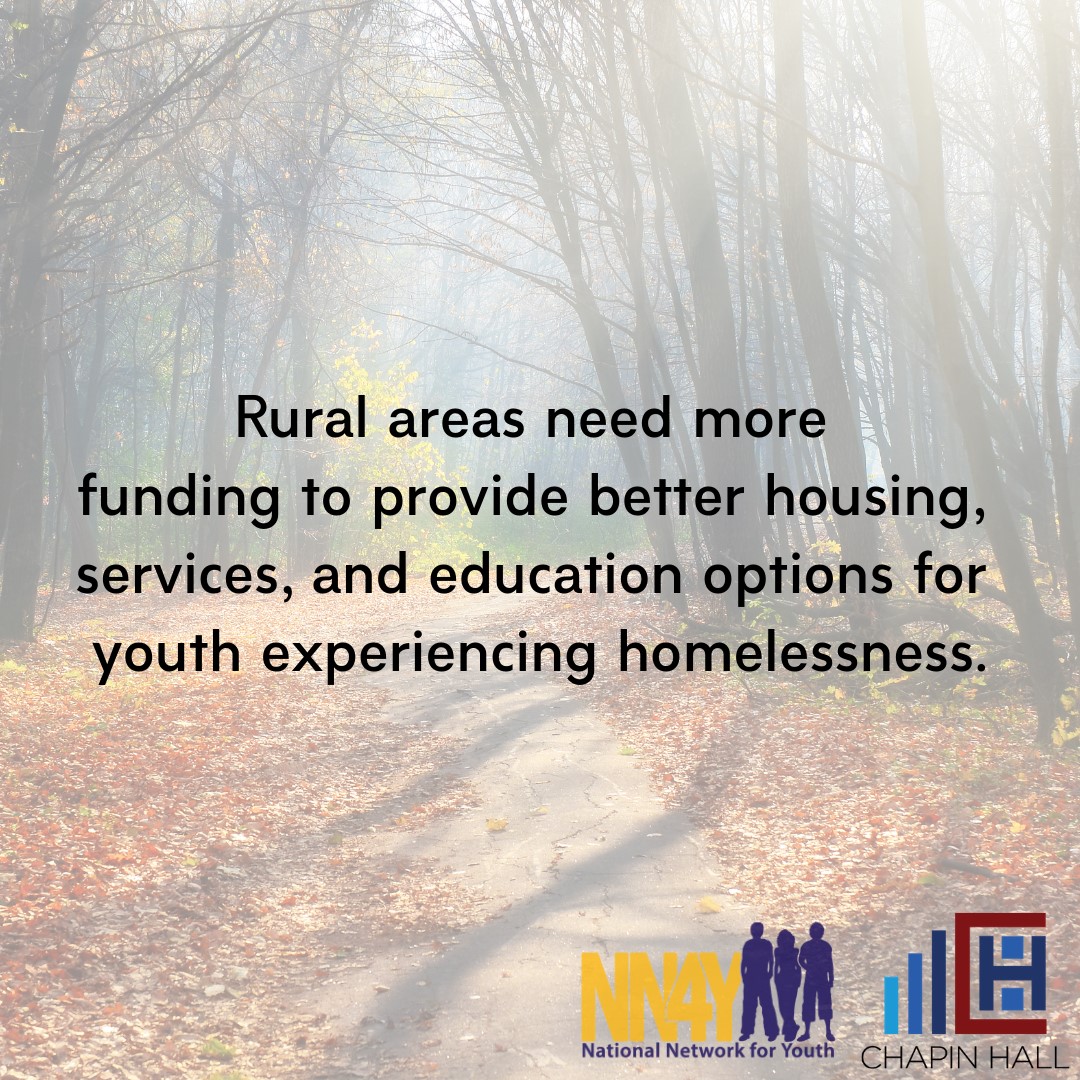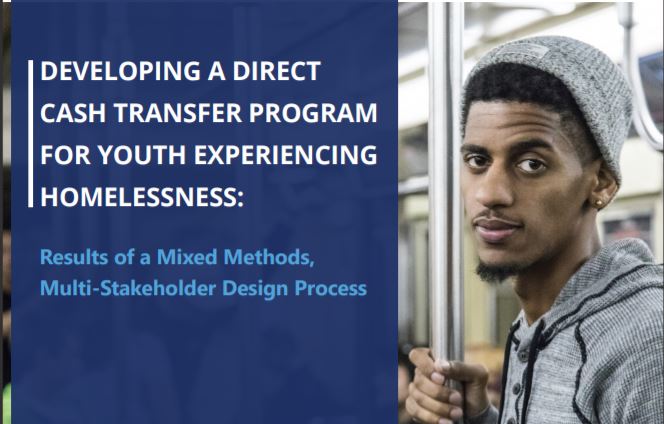|
|
Student Enrollment in the Pandemic
60 Minutes recently ran a story that followed Laura Tucker, a McKinney-Vento liaison, as she tried to track down the more than 7,000 students in Hillsborough County, Florida, who did not return to school this Fall. There are students who have fallen through the cracks - like Kiara, who is unstably housed and could only use her phone to complete assignments. This issue is not limited to Florida. According to SchoolHouse Connection and Poverty Solutions at the University of Michigan, compared to last year, 420,000 fewer young people experiencing homelessness have been identified and enrolled in schools during the Coronavirus disease (COVID-19) pandemic. Liaisons are doing the best they can, but there are needs not being met across the board hindering young people from receiving an education during this time. To read SchoolHouse Connection’s report, which includes recommendations for Congress, state and local agencies, relief agencies, and philanthropy, click here.

|
Re-imagining the Youth Justice System
Los Angeles County is reimagining the youth justice system. The county’s probation department will no longer house young people in detention halls and facilities – instead, the county is creating the Department of Youth Development. The Department of Youth Development seeks to “…design a restorative, health-focused, care-first youth justice system.” The groundwork for this shift was outlined in an October report released by The Youth Justice Work Group of Los Angeles County which can be read here. An article about the changing system can be accessed here. |
Addressing Rural Youth Homelessness
Chapin Hall and National Network for Youth (NN4Y) have released a report exploring the challenges rural youth experiencing homelessness face and ways to strengthen the response to these needs. The report explores and makes recommendations for identifying youth, services and support, equity and inclusion, and collaboration. Access the report here.

|
Developing a Direct Cash Transfer Program for Youth Experiencing Homelessness
Chapin Hall, in collaboration with Point Source Youth, has released a new report that explores effective ways to develop and execute a direct cash transfer program (DCTP) as a tool to help youth experiencing homelessness. According to the report, DCTP’s are most effective when they center on youth, equity, and trust; boost housing stability and employment; adopt a flexible and simple approach, and identify and manage barriers to success. To read more, access the report here.

|
Hope Squad National Conference
NSPN staff Michelle Hurley and Autumn Sandlin presented “Safe Place: Someplace to go. Someone to help.” at the first virtual Hope Squad Annual Conference on October 28th. The presentation provided an overview of Safe Place and TXT 4 Help, as well as how youth can identify the warning signs of familial violence. Hope Squad is a student-led suicide initiative that trains students, nominated by their peers, on peer-to-peer prevention, intervention, and postvention. For more information about Hope Squad, visit www.hopesquad.com.

|
|
|
<< first < Prev 1 2 3 4 5 6 7 8 9 10 Next > last >>
|
|
Page 8 of 22 |







